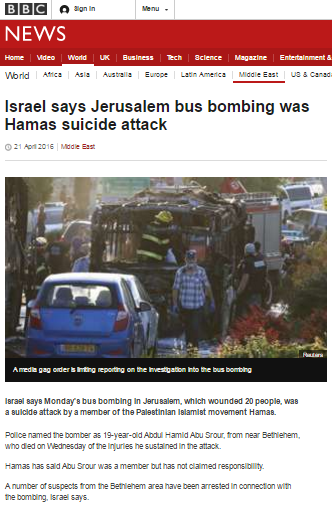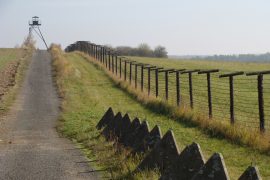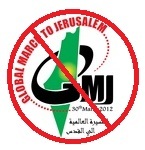Two days after the April 18th terror attack on a bus in Jerusalem, the Sha’are Zedek Medical Center announced that one of the casualties evacuated to that hospital had died. Shortly after that announcement on the evening April 20th, Hamas issued a communication naming the dead man as the bomber and stating that he was one of its members.
The BBC Gaza office’s Rushdi Abualouf noted the appearance of the Hamas announcement on Twitter and the next morning an article titled “Jerusalem bus blast: Hamas says member behind bombing” appeared on the BBC News website’s Middle East page.
“The Palestinian Islamist group Hamas says one of its members was behind Monday’s bus bombing in Jerusalem.
Hamas issued a statement on Wednesday night following the death of a young Palestinian man who succumbed to the injuries he sustained in the attack.
Hamas and Palestinian officials named him as Abdul Hamid Abu Srour.”
The first three versions of that report inaccurately informed readers that:
“Israeli authorities have not yet confirmed whether they are treating the bombing – which injured another 20 people – as a terrorist attack.”
In fact, the Israeli police had confirmed that the explosion on the number 12 bus was a terror attack within hours of it having taken place.
The report also told BBC audiences that:
“The Palestinian health ministry identified him as Abdul Hamid Abu Srour, a 19-year-old from the Aida refugee camp outside Bethlehem in the occupied West Bank.”
However, the Israeli Security Agency and the police stated that the terrorist actually lived in Beit Jala.
Some eight hours after the article’s original publication its headline was changed to read “Israel says Jerusalem bus bombing was Hamas suicide attack” and the Hamas announcement which was previously the report’s subject matter was curiously relegated to the third paragraph.
“Israel says Monday’s bus bombing in Jerusalem, which wounded 20 people, was a suicide attack by a member of the Palestinian Islamist movement Hamas.
Police named the bomber as 19-year-old Abdul Hamid Abu Srour, from near Bethlehem, who died on Wednesday of the injuries he sustained in the attack.
Hamas has said Abu Srour was a member but has not claimed responsibility.”
Whilst technically that last sentence is accurate, BBC audiences were not provided with any analysis of the significance of Hamas’ chosen tactics – as explained by Avi Issacharoff:
“…the Hamas announcement that Abed al-Hamid Abu Srour, 19, from the al-Ayda refugee camp in the Bethlehem area, was “one of ours” fell short of a full claim of responsibility for the attack, which injured 20 other people. […]
None of the group’s senior officials rushed to proudly declare that Hamas was behind the attack, but it appears that every Palestinian in the West Bank and Gaza Strip has been made well aware via social media who is claiming credit, if not full responsibility. […]
The hesitant announcement by Hamas highlights the dilemma that has plagued its leadership since the attack took place three days ago: explicitly declare responsibility and glory in the ensuing credit but risk being dragged into a confrontation with Israel, or keep a safe distance away and try to cover up that the bomber was a member of the group.[…]
While there may not have been a direct command by the Hamas leadership to plant the bomb, the message being directed to Hamas operatives from the leadership in Gaza and abroad is clear: carry out as many attacks as possible, wherever you can, in order to perpetuate the “lone wolf intifada.””
Since the start last autumn of the surge in terror attacks, the BBC’s reporting has frequently failed to inform audiences of Hamas’ praise for attacks to which it was not necessarily connected, downplayed its involvement in others and under-reported its attempts to escalate the violence. That of course comes in addition to the long-standing absence of any serious BBC reporting on the topic of Hamas’ efforts to boost its profile in Judea & Samaria and Jerusalem.
With its use of euphemistic language such as “the Palestinian Islamist movement Hamas” and “Palestinian militants” this BBC report again fails to provide audiences with the information they need in order to be able to fully understand this particular “international issue”.
Related Articles:
BBC News reports Jerusalem bus bomb without using the word terror




